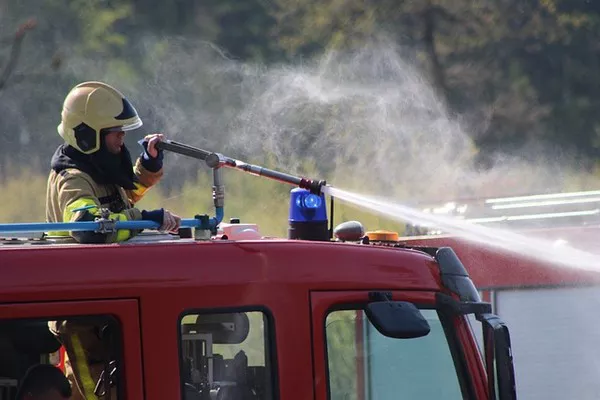Electrical fires pose unique challenges and hazards, and it is crucial to have the appropriate fire extinguisher readily available to effectively combat such incidents. The use of incorrect extinguishers can exacerbate the situation, leading to severe consequences. This article aims to provide a comprehensive guide on selecting the right extinguisher for electrical fires, outlining the various types of extinguishers, their functionalities, and best practices to enhance safety.
Understanding Electrical Fires
Electrical fires are caused by the ignition of electrical equipment or wiring. Unlike other fires, attempting to extinguish them with water or water-based extinguishers can lead to electric shock hazards and the spread of the fire. The key to tackling electrical fires is to utilize extinguishing agents that do not conduct electricity and, more importantly, do not disturb the flow of electrical current.
Types of Fire Extinguishers
Class C Fire Extinguishers:
Class C extinguishers are specifically designed to combat electrical fires. They contain non-conductive extinguishing agents, such as carbon dioxide (CO2) or dry chemical powder. CO2 extinguishers displace oxygen to smother the fire, while dry chemical powder creates a barrier that separates the flames from the electrical source.
ABC Multipurpose Fire Extinguishers:
An ABC fire extinguisher is suitable for various types of fires, including electrical fires (Class C). These extinguishers contain a dry chemical agent that is non-conductive, making them effective for electrical fire situations.
Choosing the Right Extinguisher
1. Evaluate the Risk:
Before selecting an extinguisher, conduct a thorough risk assessment to determine the potential fire hazards in the area. Identify all electrical equipment and wiring, and consider the surrounding environment.
2. Read the Labels:
Extinguishers are labeled according to the types of fires they are suitable for. Look for the “Class C” or “ABC” label to ensure the extinguisher can be used on electrical fires.
3. Consider the Environment:
Take into account the size of the area and the presence of other fire hazards. For larger spaces or areas with a higher fire risk, it might be prudent to have multiple extinguishers strategically placed.
4. Training and Familiarity:
Ensure that individuals who may need to use the extinguisher are trained in its proper operation. Regularly review the steps for using the extinguisher and provide refresher training when necessary.
Best Practices for Using an Extinguisher on Electrical Fires
1.Call for Help: Before attempting to use an extinguisher on an electrical fire, call emergency services to report the incident. Even if you manage to extinguish the fire, it is essential to have professionals assess the situation and ensure there are no hidden hazards.
2. Cut Off the Power: If it is safe to do so, cut off the power supply to the affected area. This action can help prevent the fire from spreading or reigniting.
3. Keep a Safe Distance: When using an extinguisher, maintain a safe distance from the fire. Stand at least 6 to 8 feet away to avoid electrical shock.
4. Aim at the Base: Direct the extinguishing agent at the base of the flames rather than the top. This approach helps to smother the fire’s source and prevent it from spreading.
5. Use a Sweeping Motion: When discharging the extinguisher, use a sweeping motion from side to side. This technique covers a broader area and increases the chances of successfully extinguishing the fire.
Conclusion
Selecting the appropriate fire extinguisher for electrical fires is a crucial aspect of fire safety preparedness. By understanding the unique challenges posed by electrical fires and the types of extinguishers available, one can make informed decisions during emergencies. Remember to conduct regular checks on extinguishers, provide adequate training to potential users, and prioritize safety at all times. By following these guidelines, individuals can confidently handle electrical fires and contribute to safer environments for all.

